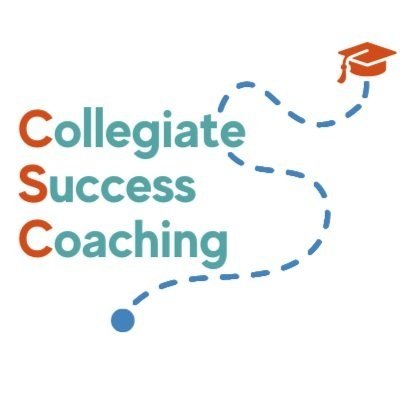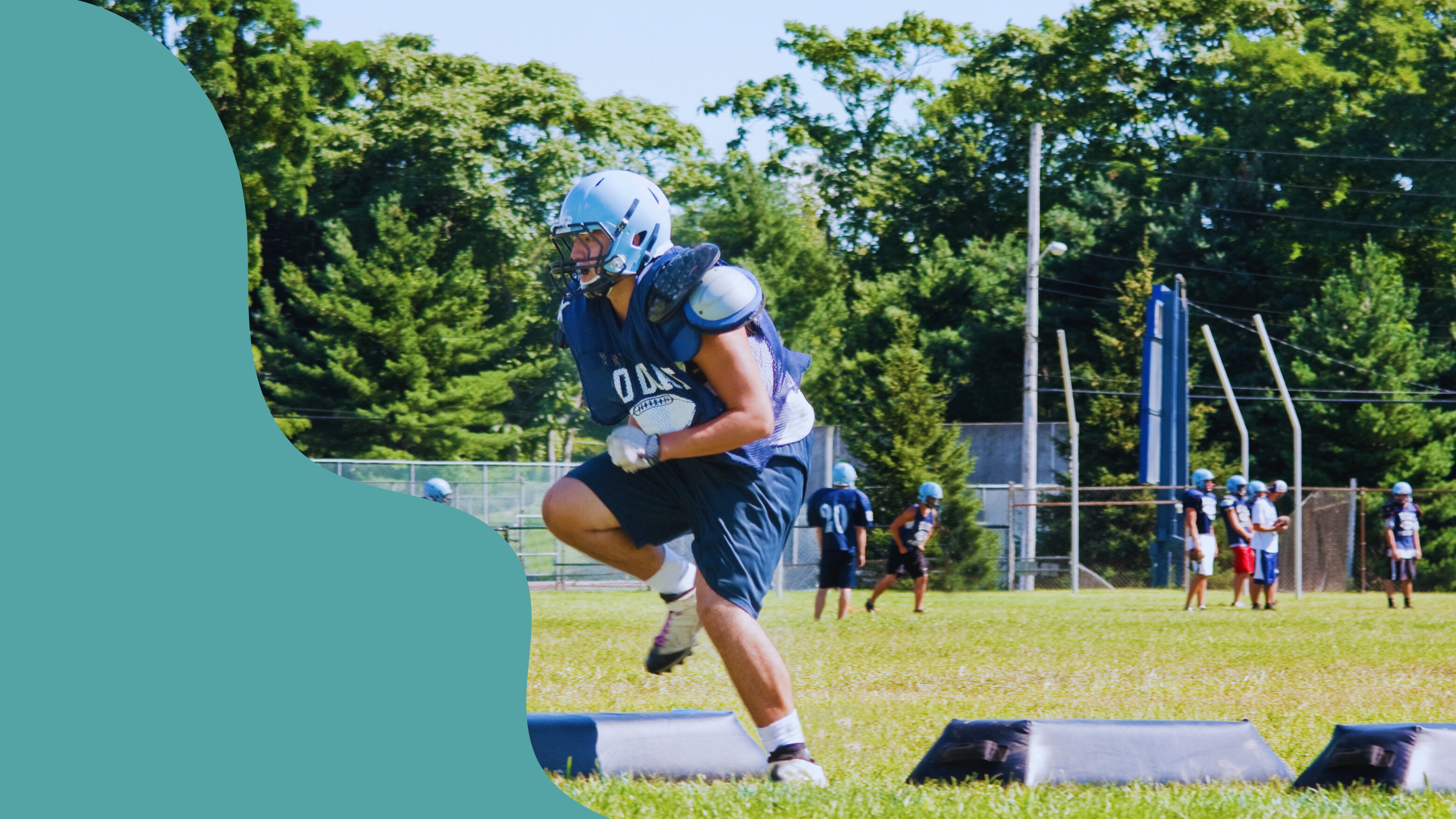The 12 Key Skills of Executive Function (and What They Look Like for College Students)
You’ve heard a lot about executive functioning recently. What used to be a term reserved for academics is now popping up in news articles and social media. From grade school students missing assignments through older adults practicing instruments, executive function finds itself in the spotlight.
Today we are putting a coaching technique into practice - breaking down a large concept into smaller, manageable pieces - to explain what executive function means and how it can impact you ‘s nd your student’s day-to-day life.
Read More
Its Up to Me: Finding What Works for Students with ADHD Individually
We’re learning so much about how neurodivergent brains function differently from neurotypical brains.
From differences in how brains are structured to changes in how they work, new research is helping us learn more about neurodivergent brains everyday.
As we learn more, it makes sense that we need different tools for neurodivergent people. The same tools that work for neurotypical people may not work for you or your student and that’s ok. What matters is that we try a variety of tools and strategies until you find what works for you.
Read More
Building Trust with CSC Signature Clients
As a coach, I know how important it is for me to build a trusting relationship with my clients.
My students need to trust me to share their struggles and vulnerabilities so we can tackle these challenges together. My goal is to establish a trusting relationship so that as an adult (other than their parent), so I can provide meaningful suggestions and support to help my clients navigate college life with ADHD.
Read More
Calling All Prophets
So many parents I talk to are over managing their son's or daughter's life. They feel incredibly lucky, proud, and relieved, to have gotten their child through high school graduation, so when the first year of college comes around, they are just as ready to be free from micro-managing their kid's life as their college-bound young adult is to embrace the liberating freedoms of adulthood.
Read More
Habits of the Engaged Learner
The first two years of college are not exactly the most compelling in terms of course content. Most General Education curriculums, while valuable for building a foundation for higher order critical thinking skills, are kind of boring, TBH. Most students do not fail to notice that the first two years feel a bit like high school again with its repetition of History, Math, Science, and English requirements. For students who are compelled to learn based primarily on their interest in a topic, this can be a challenge, especially if they have not declared a major yet. If you're not especially interested in Environmental Science, then that course is simply going to be more challenging to learn. So how can a student who is struggling to connect with the material create more engagement (and better grades) with the content?
Read More
Spring Semester Reset
The beginning of the spring semester on a college campus feels very little like spring. With its January start date, most college students come back from winter holidays with suitcases jammed with thick sweaters and bulky hoodies, a wardrobe that suggests nothing of the fairer weather that mid-semester vacation plans promise. There is one thing about the spring semester that is consistent with the season, though, and that is a chance for a new beginning, a chance to hit the reset button on academic and personal goals.
Read More
The Most Important Plan
Of all the things that college students have to master, the most important one, in my opinion, is how to master their time. One of my favorite things to say to students is, "Do your parents get to come home from work mid-day and watch a couple of hours of Netflix, take a nap, and play video games?"
Read More
Syllabus Mapping and Beginning with the End in Mind
Back in the day, one of my favorite productivity and quality-of-life gurus, Stephen Covey, coined the phrase, “Begin with the end in mind.” It’s so simple. Make sure you have a target, and visualize the look and feel of your outcome so that you can plan exactly how you will achieve it.
Read More
Begin with What you Believe
As parents, we are so motivated to protect our children and prevent any harm from coming their way, we focus less on their capacity for improvement and more on perceived threats to their growth and development; in other words, we focus on their weaknesses.
Read More
Post Season Game Plan
Whew! Congratulations! Another season of college parenting has come to an end. You’ve dodged tackles, given locker room pep talks, and run offensive drills with your student for roughly 14 weeks. This long season began with a fresh and hopeful pre-season drop-off and continued with coaching from the sidelines about COVID safety and online learning. In the final quarter, you went #allin to get your student home safely at Thanksgiving and through finals week. Whether you have a Bulldog, an Owl, or a Tiger and the like, if you and your player aren't taking a well deserved nap right now, you should be. You parented through an especially hard-hitting season of college matriculation.
Read More
Three Steps for a Strong Final Exam Week
While some colleges and universities have decided to cancel final exams altogether, most are continuing with some form of comprehensive assessment for Fall 2020. There are also widely varying approaches to this from professor to professor and course to course at each institution. Some are giving a unit test; others are assigning large projects without an exam, while the old school adherents are sticking to the traditional cumulative exam (I was one of those professors).
Read More
Welcome Home: 4 Tips for a Copacetic College Break
Because of Covid-19 safety protocols, the last few weeks of 2020 pose a potential challenge for many college families. College students are coming home for Thanksgiving, and in most cases, they will not return to their campuses until early to mid-January. It’s one thing to relish the nostalgic reunion, seasonal foods, and close family time inherent to the winter holidays. It is another thing completely to pluck a young adult who has been practicing independent living for four months out of their new habitat and insert them back into the highly structured setting of family life for an extended length of time
Read More
More than Grades: Seeing your Student's Character Strengths
It’s about that time in the semester that parents anxiously await grade updates from their college students. Enough of the semester has passed to produce more than a few graded assignments. While professors are, in general, notoriously behind in grading and entering grades into Learning Management Systems, by mid-term, a student should have enough information to make an educated estimate about their progress in a course. Of course, for some students and for some courses, this is encouraging news. For other students and for other courses, the news can be equally discouraging.
Read More
5 Tips for Thriving in College (during a pandemic)
Let’s face it, Spring 2020 was just a practice round for this whole “Online College: Pandemic Edition” experience. Now that we are firmly into Fall 2020, things are getting real, and students are witnessing what this new normal might look and feel like long-term. The popular Redbubble sticker and IG meme, “Zoom University,” is taking on (sur)real meaning.
Read More
5 Permissions to Give Your College Student
As a parent of two young adults and a teen and as a College Student Success Coach, I find a lot of wisdom and encouragement from the classic Healthy Parenting Scale developed by Diana Baumrind . She distinguished between authoritarian, authoritative, and permissive parenting. (Her colleagues expanded her work to include Abusive and Neglectful Parenting and Pathological types at a later time.) For our purposes in this edition of my blog, we are focused on what differentiates the original three styles. The primary difference is degrees of control.
Read More
Three Reasons to Celebrate Spring Semester 2020
The semester is finally over. Everyone breathes a deep sigh of relief; students and parents are ready to jump off of the not-so-merry-go-round of the academic year that was defined by a global pandemic. As much as you want to put on the summer break mindset or look forward to what we hope will be the better days of Fall 2020, there's one thing you must do before mentally and emotionally wrapping up Spring 2020.
Read More
Why I Think College is Hard
I started recommending a new tool for my clients to use as a way for them to test themselves and identify gaps in their knowledge before major tests. It's a cool visual/mind-mapping resource called Coggle. Before I recommend any tool for clients, I try it out to discover what's easy and what might be hard for a new user, so I created a visual representation of what I call "College Success/Becoming a Self-Directed Learner." I like the outcome.
Read More
Rapid Forgetting and Other Ways to Fail a Test
When you were in school, what was your "go to" way to study? Did you employ the "read over your notes" method? How about the flashcard technique? Or maybe you were just an "all-nighter crammer." Of course, there's the "highlight everything" method. There are so many wrong ways to choose from; although, flash cards do earn an honorable mention. It's funny how we create these methods of learning without knowing much at all about how learning actually works.
Read More
Places, Places, Everyone
Place is such an important element in building a living situation that supports learning. Our brains are wired for all kinds of connections, and the places we frequent and what those spaces are designed for send strong messages to us about how we behave in them. Beds are for sleeping. Gyms are for exercising. Classrooms are for learning. Hospitals are for healing. What spaces are reserved only for lucubrating? (Ask your student if they have lucubrated lately. It's a fun word to know when you have a college student.)
Read More
Keep Moving Forward
When my kids were younger (they are 22, 20, and 13 now!), one of our favorite family night movies was the Disney Pixar film Meet the Robinsons. Do you know this one, about Lewis, the intellectually curious little boy who grows up in an orphanage and shares a room with Mike "Goob" Yagoobian, who is reserved, unsure, and completely dejected? The two boys are different in every way other than their deep desires to have a family. Lewis channels his energy into inventing time machines and attempting to impress potential parents with his original designs (PB&J Maker, anyone?).
Read More





















